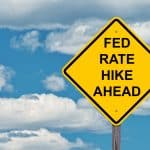How’s the Spring Housing Market Expected to Look?

According to the calendar, we’re officially already in spring, meaning it should be the busiest time in real estate. 2023 isn’t shaping up to be a typical year, however, so what does that mean for the housing market?
Below, we take a look at some of the things most impactful in the housing and real estate market right now and what agents, buyers, and sellers alike should all know as we emerge from the cold winter and move towards warmer weather.
Home Prices
According to most analysts, the real estate market is in a period of correction, but the National Association of Realtors said the sales of existing homes went up 14.5% in February. That was the first increase in 12 months. It was also the biggest increase since 2020.
The median home price in February was hovering around $363,000, which was a 0.2% drop from February of last year. That was the first year-over-year decline in home prices in over a decade.
As far as mortgages, interest rates are still high, especially compared to a couple of years ago. While they’ve been fluctuating, especially with the Silicon Valley Bank collapse, they’re still around 7% for the 30-year fixed-rate mortgage.
 So far, the Fed did nine interest rate hikes from a year ago, and they’re indicating more on the horizon.
So far, the Fed did nine interest rate hikes from a year ago, and they’re indicating more on the horizon.
With mortgage rates between 6.5% and 7%, mortgage payments are as much as 50% higher than they would have been for the same house a year ago. That’s leaving many with the impression the spring won’t be as active as normal.
Inventory
 The housing market is in a unique phase right now. While the prices are declining in some parts of the country, and interest rates are high, home prices continue to rise in other places. A lot of this divergence in the housing market depends on inventory. Inventory has been limited for years, and that’s likely the biggest reason the market hasn’t experienced a widespread crash like in 2007 and 2008.
The housing market is in a unique phase right now. While the prices are declining in some parts of the country, and interest rates are high, home prices continue to rise in other places. A lot of this divergence in the housing market depends on inventory. Inventory has been limited for years, and that’s likely the biggest reason the market hasn’t experienced a widespread crash like in 2007 and 2008.
Many analysts and real estate experts expect the spring will see stability in home values, but more inventory might slowly hit the market.
Because of the issues in the banking system, the interest rates might tick down a little this spring, which could lead to a more competitive market.
With that being said, analysts are closely watching how different the markets are depending on where you are in the country. Local markets are seeing huge discrepancies between one another. For example, in cities like Phoenix, Las Vegas, Austin, and San Francisco, there are likely to be double-digit declines in prices. Then, there may be price increases in places with a lot of job growth and an influx of new residents, like Florida and North Carolina.
Will There Be a Crash This Spring?
We’ve all been having will-it-won’t-it conversations about a potential housing market crash for at least the better part of a year, but most experts say that a crash isn’t likely this spring.
Fifteen years ago, when there was a crash, the conditions were a lot different than they are now. Along with limited inventory, something else that’s different currently are the stricter lending and borrowing standards that have been in place since then.
There’s likely to be more of a continued correction than a crash, based on what we know right now, and a lot of that, again, will be very dependent on local conditions versus national ones. Of course, no one can know for sure, but we know that unemployment is also low, along with the strict underwriting guidelines.
than a crash, based on what we know right now, and a lot of that, again, will be very dependent on local conditions versus national ones. Of course, no one can know for sure, but we know that unemployment is also low, along with the strict underwriting guidelines.
For real estate agents, buyers, and sellers, the spring of 2023 does hold opportunities but also some challenges.
